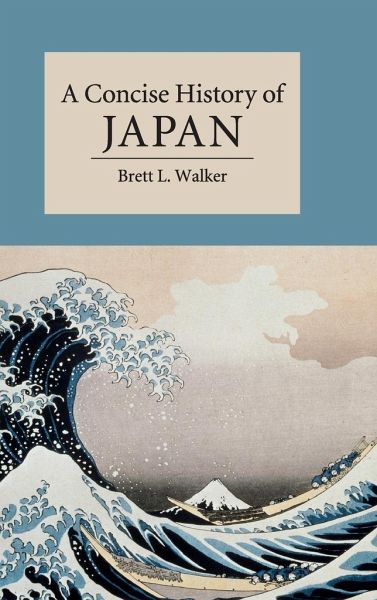
A Concise History of Japan
Versandkostenfrei!
Versandfertig in 1-2 Wochen
102,99 €
inkl. MwSt.
Weitere Ausgaben:

PAYBACK Punkte
51 °P sammeln!
To this day, Japan's modern ascendancy challenges many assumptions about world history, particularly theories regarding the rise of the west and why the modern world looks the way it does. In this engaging new history, Brett L. Walker tackles key themes regarding Japan's relationships with its minorities, state and economic development, and the uses of science and medicine. The book begins by tracing the country's early history through archaeological remains, before proceeding to explore life in the imperial court, the rise of the samurai, civil conflict, encounters with Europe, and the advent...
To this day, Japan's modern ascendancy challenges many assumptions about world history, particularly theories regarding the rise of the west and why the modern world looks the way it does. In this engaging new history, Brett L. Walker tackles key themes regarding Japan's relationships with its minorities, state and economic development, and the uses of science and medicine. The book begins by tracing the country's early history through archaeological remains, before proceeding to explore life in the imperial court, the rise of the samurai, civil conflict, encounters with Europe, and the advent of modernity and empire. Integrating the pageantry of a unique nation's history with today's environmental concerns, Walker's vibrant and accessible new narrative then follows Japan's ascension from the ashes of World War II into the thriving nation of today. It is a history for our times, posing important questions regarding how we should situate a nation's history in an age of environmental and climatological uncertainties.




